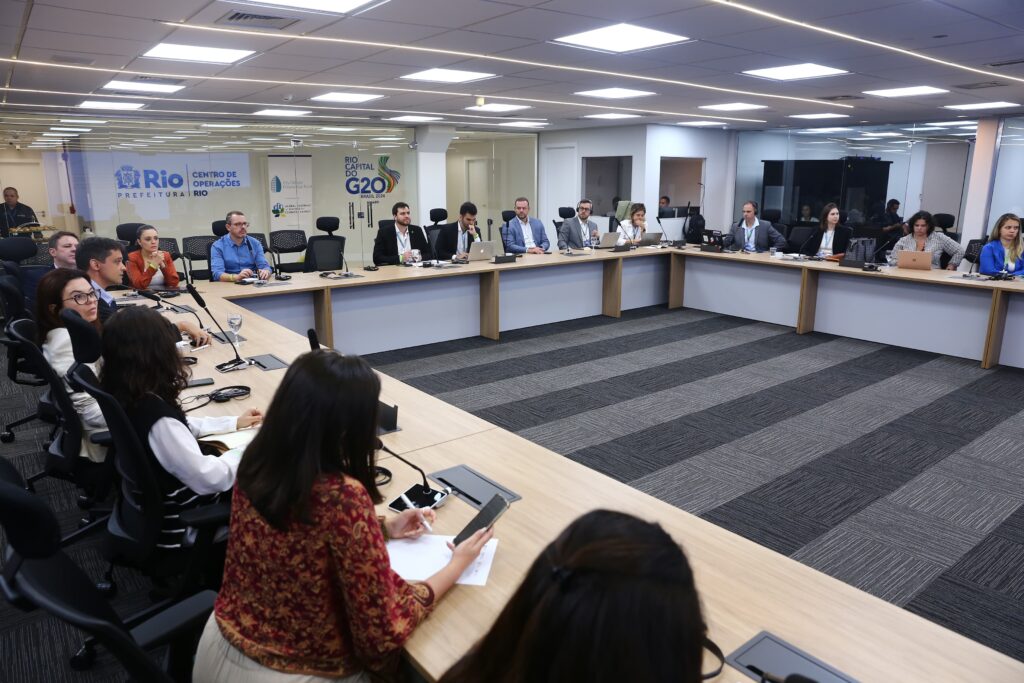
GCoM-Gap Fund LAC Team Champions Climate Finance Solutions at the U20 Summit
The U20 Summit, held in Rio de Janeiro from November 14 to 17, 2024, concluded with a broad call by mayors and city leaders, including representatives from C40 Cities and the Global Covenant of Mayors for Climate & Energy (GCoM). Their message to national governments and development banks was clear: increase urban climate finance by at least $800 billion annually by 2030 to enable cities to implement their climate actions and deliver on their commitments.
Throughout the Summit, a series of dialogues and side events were held to outline the contribution of cities and sub-national governments to the G20. In particular, the GCoM-Gap Fund team, represented by Guillermo Piñones and Agustín Botteron, had an important participation through side-events on national and subnational climate finance experiences and strategies in Latin America.
Participating in sessions organized by Centro Brasil pelo Clima (CBC) and Climate Group as well as GCoM Americas and ICLEI, the LAC team highlighted the critical role of Project Preparation Facilities in supporting cities, especially in the early stages of projects, as well as the need to increase multi-level coordination strategies, project aggregation and integration of sectors to expand opportunities for financing access.
A standout moment was the 2nd Workshop on Climate Finance for Brazilian subnational and municipal governments, which gathered representatives from state governments out of the Green Brazil Consortium and from the Frente Nacional de Prefeitos (FNP). This 2nd Workshop was mainly oriented to the areas of sustainable mobility and blue infrastructure, where the first block counted with the participation of experts to frame the discussions. First, Filipe Souza, Urban Mobility Manager of the BNDES, highlighted the experiences of the VLT of Rio de Janeiro, the Salvador Metro and the Electric Onibus. He also emphasized the relevance of keeping local planning instruments up to date and coordination between levels of government, considering that “mobility infrastructure are long-term efforts that require significant preparation time, as they are projects that are sensitive to technical and economic feasibility and, therefore, are developed in a partial way”.
Furthermore, Cristiane Borda, GIZ Senior Advisor for the C40-CFF program, reinforced the benefits of blue-green infrastructure development by highlighting the case of the DRENURBS environmental recovery and sanitation program in Belo Horizonte. Cristiane also stressed the relevance of planning in project design, the opportunities for collaboration between large and small cities, as well as the use of innovative instruments at the municipal level to promote the development of green infrastructure.
The GCoM-Gap Fund team led the second part of this workshop, aimed at building capacity in climate finance and project structuring through hands-on activities. The workshop concluded with a forward-looking agenda, identifying collaboration opportunities between local and state governments and for the preparation of project ideas, as well as priority actions for 2025, ahead of COP30.